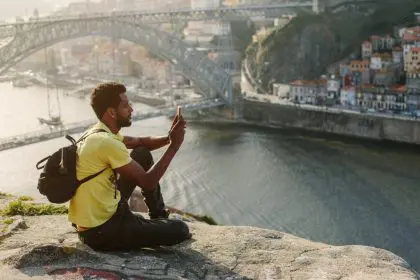The gentle rustling of leaves and distant birdsong have replaced the familiar ping of notifications for a growing number of travelers seeking respite from our hyperconnected world. This shift toward silence-focused vacations, dubbed ‘quietcations,’ represents more than just another travel trend – it’s becoming a vital counterbalance to our increasingly noisy lives.
The rise of mindful travel
The numbers tell a compelling story: search interest in quiet destinations has surged 50% year over year, while calm-focused travel experiences have seen a 42% increase in demand. This dramatic shift reflects a deeper transformation in how people approach their time away from home.
Understanding the quietcation phenomenon
At its core, a quietcation emphasizes mindful travel and tranquility over the traditional vacation model of packed itineraries and constant movement. This approach stands in stark contrast to the social media-driven concept of ‘quiet vacationing,’ where individuals maintain work connections while technically off-duty. True quietcations involve a complete disconnection from daily pressures, whether through structured silent retreats or self-guided nature immersion experiences.
The science of silence
Research has demonstrated that embracing quiet environments can yield significant health benefits. The absence of constant noise has been linked to reduced blood pressure, enhanced creative thinking, improved sleep quality, and decreased anxiety levels. These findings help explain why wellness-focused travelers are increasingly drawn to destinations that prioritize silence and solitude.
Breaking free from digital noise
Modern life’s constant digital chatter has made silence feel uncomfortable for many. This discomfort, paradoxically, has driven more people to seek out quiet experiences during their travels. The key lies in gradual adaptation – starting with brief periods of silence and slowly extending these intervals as comfort grows.
Designing your quietcation experience
For those intrigued by the concept of silent travel, several approaches can help ensure a successful experience. The key is to start gradually and create a framework that supports genuine disconnection.
Essential elements for success
Journaling has emerged as a vital tool for quietcation participants, helping process the thoughts and emotions that surface during periods of silence. Additionally, choosing locations with natural beauty can enhance the experience, allowing travelers to engage more deeply with their surroundings through all their senses.
Global destinations embracing the quiet
While many locations offer opportunities for quiet reflection, several destinations have distinguished themselves by creating environments specifically designed for silent travelers.
Mexico’s Fairmont Mayakoba has transformed its tropical setting into a sanctuary for quiet seekers, integrating nature walks and wellness practices into its offerings. In Thailand, The Soul Resort has pioneered a program combining traditional meditation practices with modern wellness approaches.
For those seeking a more adventurous quiet experience, Tanzania’s Meliá Serengeti Lodge offers walking safaris that emphasize mindful observation of wildlife. Closer to home, New York’s Wildflower Farms in the Hudson Valley provides a perfect introduction to quiet travel, while Portugal’s Saccharum resort on Madeira island combines cultural immersion with opportunities for solitude.
Beyond the vacation: cultivating everyday quiet
The true value of a quietcation often reveals itself after returning home, as travelers find ways to incorporate periods of silence into their daily routines. Creating tech-free zones within the home and scheduling regular quiet time can help maintain the benefits gained during a silent retreat.
These practices become increasingly important as our world grows louder and more demanding. By learning to embrace silence during travel, individuals often discover tools for managing stress and maintaining balance in their everyday lives.
The future of quiet travel
As the quietcation movement continues to gain momentum, travel industry experts predict an expansion of offerings catering to this growing market. This evolution suggests a broader shift in how society views vacation time – moving away from the notion of constant activity toward an appreciation for stillness and reflection.
The trend also reflects a deeper understanding of what constitutes true luxury in modern experiences. Instead of opulent amenities or exclusive access, many now view uninterrupted quiet time as the ultimate indulgence.
This reimagining of priorities points to a future where the ability to find genuine silence becomes increasingly valuable. As cities grow noisier and digital demands more persistent, locations offering quality quiet experiences may well become the most sought-after destinations.
The quietcation trend represents more than just a new way to vacation – it’s a response to our collective need for spaces where we can hear ourselves think. As more travelers embrace this approach, they’re discovering that sometimes the most memorable journeys are those taken in silence.

















